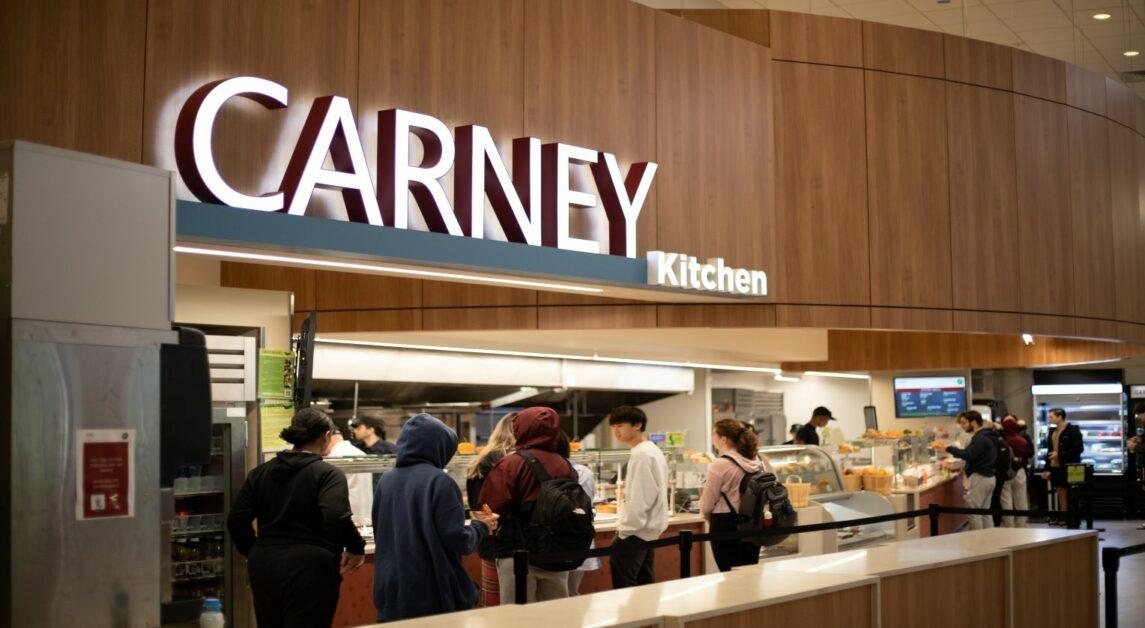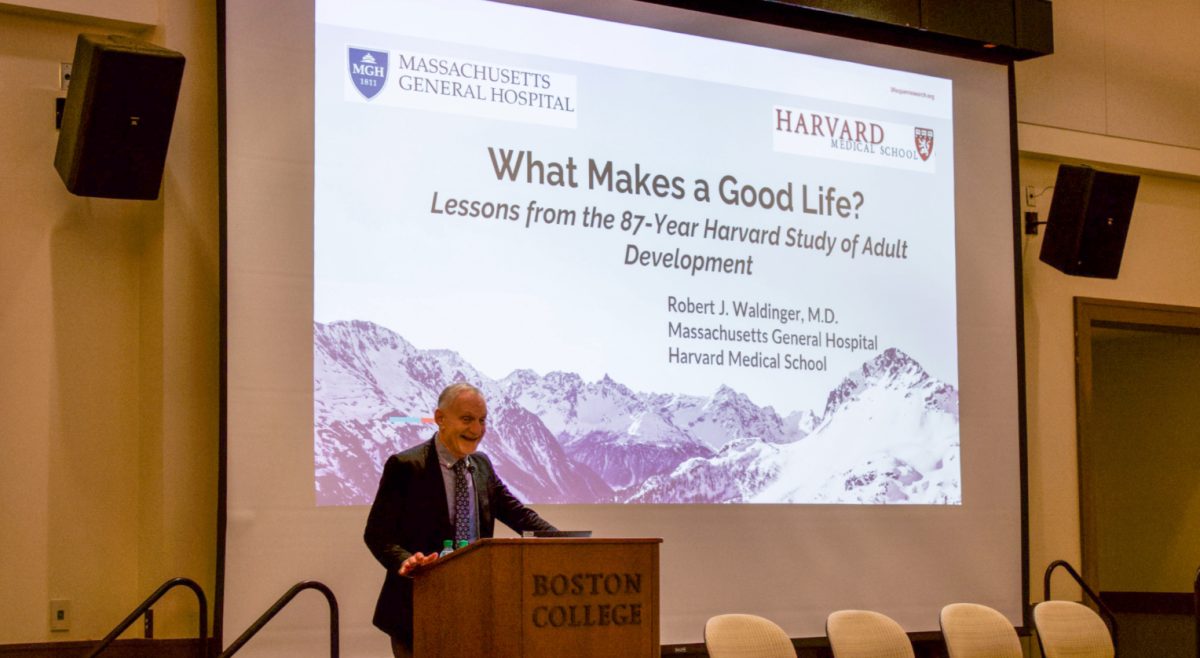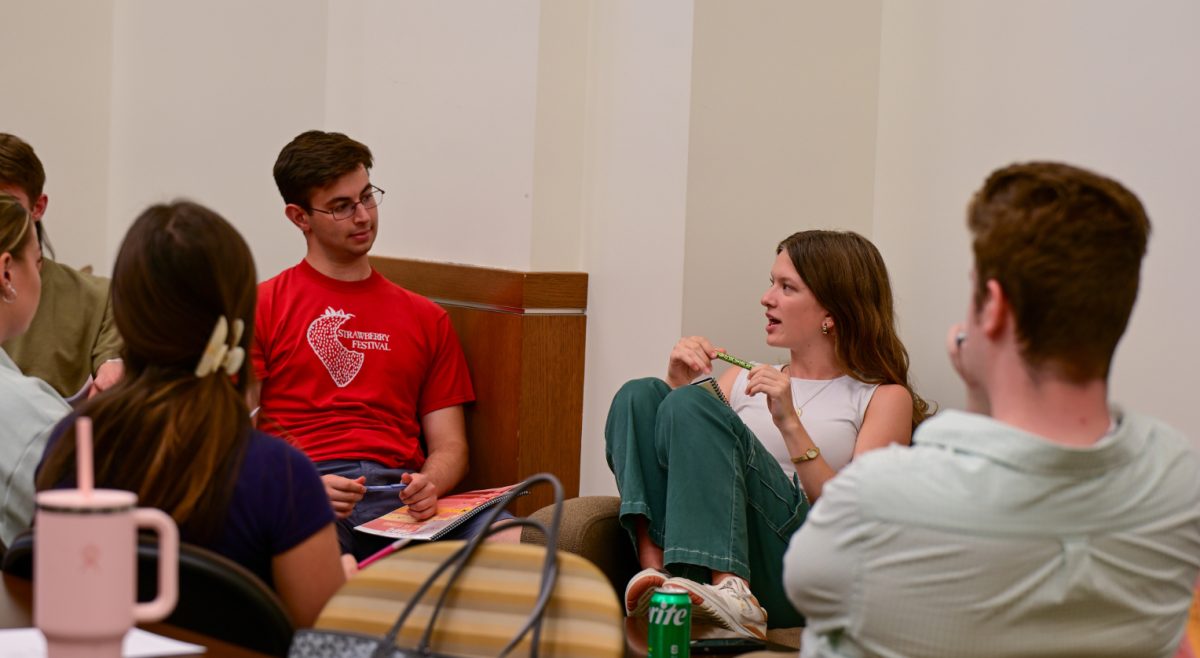This is the first installment of a three part series about BC Dining.
Jamie D’Ambra, MCAS ’25, was finishing her chicken and two sides—a Boston College Dining classic—when her roommate noticed something dark peeping out of the vegetables.
Unsure of what it was, D’Ambra said the two pushed the vegetables aside and uncovered a giant black bug.
“It was so big,” she said. “It did not look like any bug I’ve seen before, and it was clearly cooked into the food. I was really shocked.”
Students from other tables in Lower Live crowded around D’Ambra to get a look, she said.
“I was so shocked and kind of overwhelmed with everyone coming around me and saying I had to do different things about it,” D’Ambra said. “I was really disgusted by it.”
D’Ambra is one of many students who claim to have encountered issues with BC Dining meals, ranging from finding bugs in their food to being served raw eggs. Others have even reported experiencing multiple allergic reactions to meals they received at BC.
One of these students is Rachel Belanger, MCAS ’23, who said that after one incident, she can no longer bring herself to have chicken caesar salad in the dining halls.
“I picked up a piece of chicken and realized there was something hard in it,” Belanger said. “I looked at it, and it was a decent 2-inch-sized bone.”
Belanger said she kept her salad and ate around the chicken, but D’Ambra did not keep her dish. Instead, she brought hers back to one of the dining hall managers, she said, who immediately took it into the back.
“I was also kind of surprised by [that]—like they didn’t want anyone else to see what was happening,” D’Ambra said.
The manager offered D’Ambra her dinner for free and said they would contact their purveyor about the incident, she said.
But D’Ambra said she felt like she never got a conclusion—she never figured out how the bug ended up in her food or how BC Dining would prevent it from happening again. To her, it seemed like BC Dining was more focused on making her feel better in the moment and not as focused on hearing her concerns.
“It was more them telling me that I could get my meals for free and that would solve all the issues,” she said. “I was more concerned about bugs being in other people’s food.”
Though she now avoids vegetable medleys at Lower, D’Ambra said this incident did not stop her from eating BC Dining food—she is just more careful.Lily Simmons, MCAS ’25, said she also has to be careful eating at BC Dining after having 10 allergic reactions to the food.
Simmons develops an itchy throat and hives when eating soy or nuts, she said, though she has not communicated her allergies to BC Dining.
“I have to carry a little allergy bag with me everywhere because I never know if I’ll just spur of the moment have a reaction to something due to cross contamination,” Simmons said.
The first allergic reaction Simmons had at BC occurred during her freshman year orientation after getting breakfast with her roommate, she said. Simmons said she was surprised to find soy flour listed as a waffle ingredient on the BC Dining website after her reaction.
“I got the waffles because I’ve had waffles my whole life. I thought that would be harmless,” Simmons said. “And then we were on our way down to Conte [Forum], and I started having an allergic reaction.”
Although she avoids soy products such as edamame and tofu, Simmons said she still has frequent allergic reactions to BC Dining salads because of what she believes to be cross contamination.
“Many times that I’ve gotten the salad, I’ve gotten hives on my face after eating it,” Simmons said. “I know what pills to take at this point, but it’s just kind of frustrating because I shouldn’t have to take pills after just having lunch.”
But some students, like Kristen Bayreuther, MCAS ’23, have encountered issues with BC Dining meals even before lunchtime. Bayreuther does not usually go to the Lower Live dining hall, she said, but one morning she decided to get two hard-boiled eggs.
“As I start to peel my egg, I can see that there’s an actual sack still there,” she said. “I’m like ‘oh my god, something is wrong here. Maybe it’s just a fluke.’ I go to open the second one, which I’m less gentle with, and it just explodes.”
The eggs, Bayreuther said, were completely raw. She said she went back to the dining hall to ask for more eggs and spoke to the BC Dining employee making them.
“I told him I had a problem with my eggs, and he said, ‘Let me guess, they were raw,’” she said. “Apparently when they were restocking, they mixed up the raw eggs with the cooked eggs.”In a statement to The Heights, BC Dining Director Beth Emery encouraged students to bring any concerns with their meals to the manager on duty.
“We can resolve the issue on the spot by replacing their meal if they are not satisfied, as would occur in any restaurant,” Emery said. “This also gives us the opportunity to address problems immediately with our culinary team.”
Emery added that all of BC Dining’s cooks are extensively trained in food safety.
“Additionally, all of our cooks and managers are required to attend a two-day safe-food handling training called ServSafe and become certified ServSafe Managers, the highest certification level available,” she said.
But Bayreuther, Simmons, Balenger, and D’Ambra are not the only students who have experienced issues with meals at BC. Three members of the Class of 2024 started an Instagram account, @bc_chefskiss, their freshman year to document BC Dining mishaps. While they originally just posted their own photos, submissions soon started flooding in, according to the account administrators.
The students said they soon became selective about what photos to post due to the large number of submissions the account received. The most common messages were images of undercooked food, one of the account owners said.
“There were some [submissions] that were just so much more shocking than others, so it just came down to that,” the account owner said. “We got so many raw chickens. Like, how many raw chickens can we post?”
The students said they did not realize how widespread these issues were until they started @bc_chefskiss. Some of their friends from home followed the account, they said, and remarked that dining at their own schools did not have these kinds of issues, which range from expired and moldy food to foreign objects in dishes.
Even though D’Ambra said she continues to eat BC Dining food, she will never be able to forget what it was like to see that giant black bug in her dish.
“It always is in the back of my head, though, and I am extra cautious when I’m getting something where I can’t really see everything I’m eating,” she said. “I always kind of pick through it now rather than just eating it without thinking about it.”
Beth Verghese, Julia Kiersznowski, and Erin Shannon contributed to reporting.



















